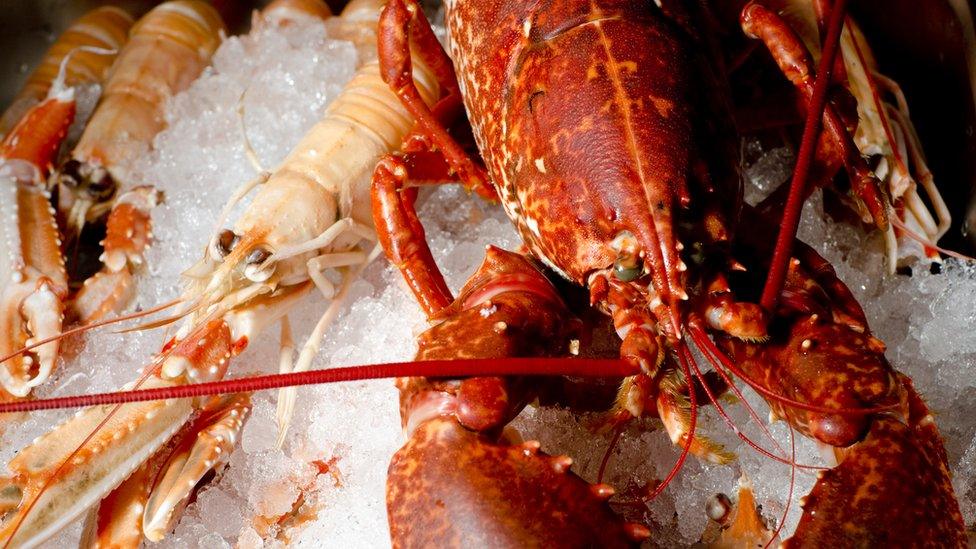Have fish quotas had their chips?
- Published
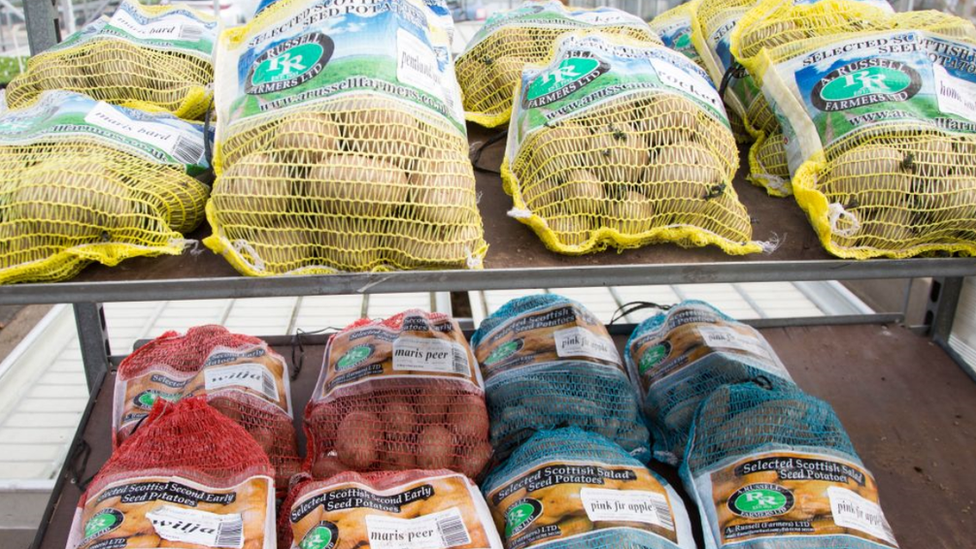
The starting point for Europe's trade relationship with the UK has begun, separately from a trade deal, with "third country status" vital to keep agricultural goods flowing across the English Channel and North Sea.
However, the European Union has taken out of that deal at least one crop, the seed potato, as a penalty for British refusal to align its business regulation and standards with those set in Brussels.
That points to the use of political pressure on the Conservative government, and we can expect lots more of that to come.
We knew fish was a big issue for Europe's future dealings with the UK, and reportedly continued that way into the final hours before unveiling a trade deal.
But chips as well? The humble tattie has become a part of the negotiation, and as a significant Scottish export, it's been targeted to put pressure on the government in London.
This has to do with "third country" status being approved, as part of the UK's dealings with the European Union. That isn't part of a deal on removing tariffs and quotas as obstacles to trade, but instead a necessary starting point for any trading relationship that Britain has with the EU.
It's particularly important for agricultural exports. And ahead of the trade agreement being unveiled, in all the glory of its technical jargon (watch out for cross-retaliation, a ratchet clause, data adequacy and pelagic zonal attachment), it allows exports of meat, dairy and crops to cross the border.
But not all crops. At least one item has been left out of the deal, and deliberately so. Seed potatoes are not included, while "ware" potatoes are.
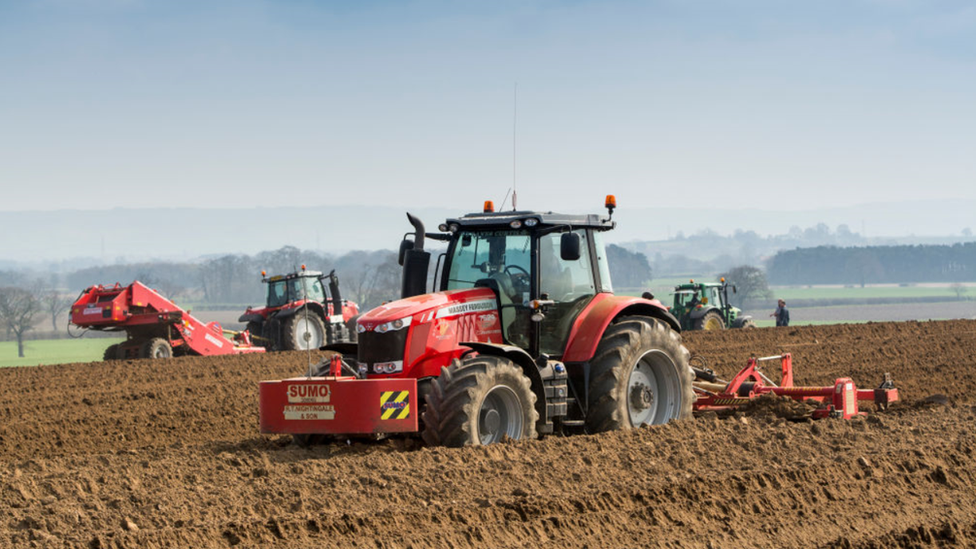
Seed potatoes grown in Scotland are a significant export
Ware potatoes are the ones consumers buy and boil, or roasted with other trimmings with the Christmas turkey. Seed potatoes are sold to farmers in warmer climes, where yield on potatoes is affected by year-round bugs and disease.
With its colder, wet climate, Scotland gives potatoes a disease-free start in life, and those seed potatoes are exported to Mediterranean countries, to replenish perpetually depleting production. North Africa has the biggest customers, while 20,000 tonnes - around a fifth of the UK's total exports - have gone to the European Union.
The reason given, in a letter to the agriculture sector seen by the BBC, is that the UK has not complied with the EU's demands on "dynamic alignment".
This has very little to do with tattie farming, and everything to do with the level playing field, which has been a major bone of contention in negotiations. It's about the EU's requirement that future upgrades in the levels of regulation for environmental or labour protection by the European Union should be matched by the UK.
Carrot and stick
The UK has pushed back, saying it doesn't want its standards to be set by the EU. That was the point of Brexit for many Brexiteers.
There may be some compromise, but not enough for the Europeans, so they're exacting a price - and choosing to target seed potatoes.
Why? Well, trade is about the incentive for both partners to become better off, but also about pressure for each other to give ground. The EU is experienced in picking the pressure points in its trading partners, such as the United States.
That is why there's a 25% tariff on bourbon and other US whiskies, in retaliation against US tariffs on steel and aluminium. The Republican Senate majority leader, Mitch McConnell, represents the whiskey distilling state of Kentucky.
So when it sought a product that would put pressure on the UK government, it alighted on one that is grown mostly in the counties of Perthshire, Angus, Aberdeenshire and Moray. What do they have in common politically? They are where you're most likely to find Scottish Tories.
The politics of Brexit doesn't finish with a deal. Much of it starts from a deal. As with Switzerland, the relationship with the European Union is going to be a near-constant negotiation - offering economic carrot and wielding a political stick.
- Published24 December 2020
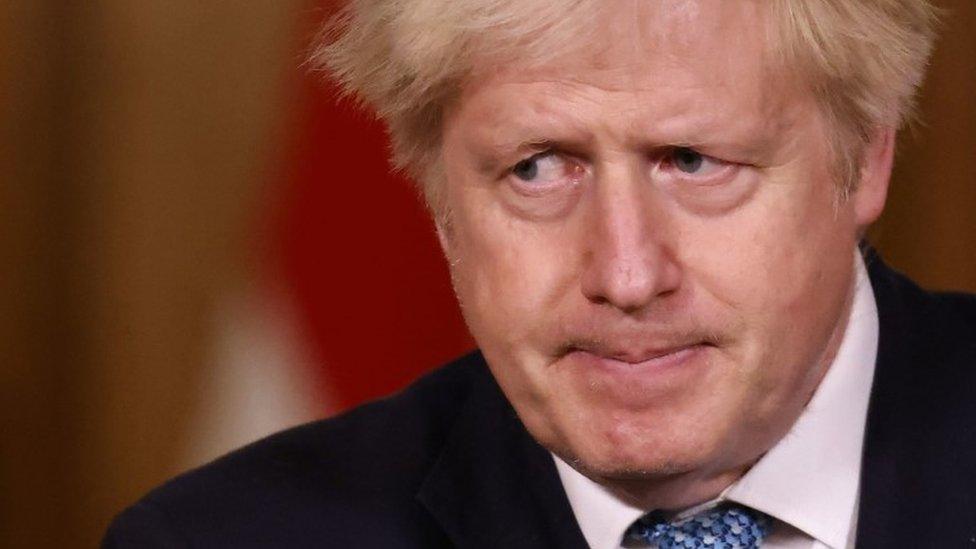
- Published24 December 2020
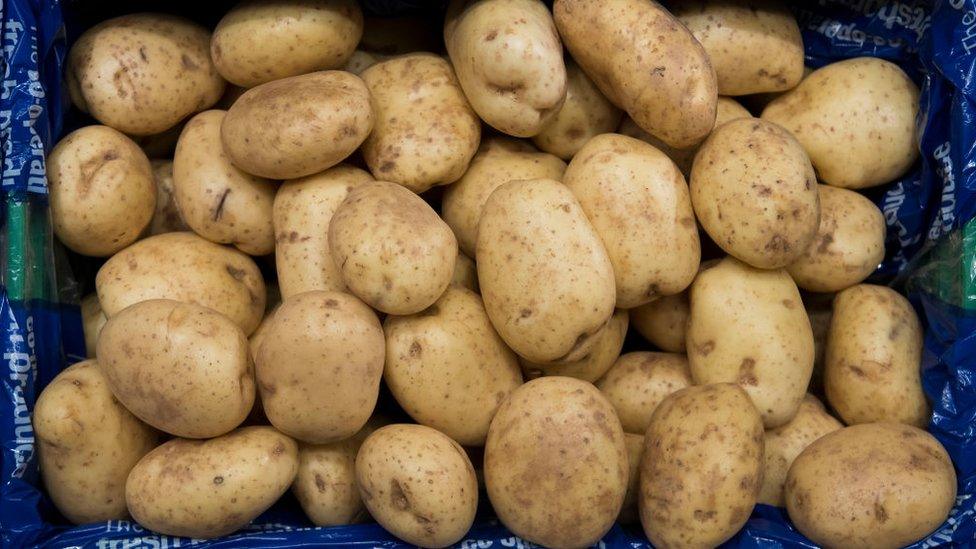
- Published21 December 2020
